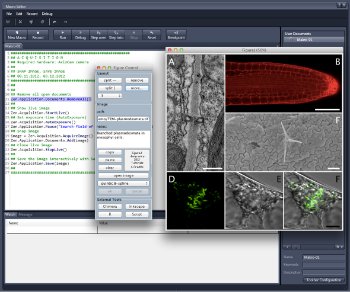At this year's annual meeting of the American Society for Cell Biology in San Francisco, USA, the Microscopy business group of Carl Zeiss is presenting a Digital Slide Scanner. Axio Scan.Z1 is an automated microscope system which allows researchers to digitalize fixed tissue sections and cytologic specimens in brightfield and fluorescence.
 Simple and reproducible: Using Axio Scan.Z1, researchers can digitalize up to 100 fixed tissue sections and cytologic specimens at a time.
Simple and reproducible: Using Axio Scan.Z1, researchers can digitalize up to 100 fixed tissue sections and cytologic specimens at a time.
Thanks to the tray concept, Axio Scan.Z1 captures the entire specimen area of the microscope slide – including the edge. Just a few minutes later, the self-calibrating automized slide scanner presents specimens on high-quality virtual slides. Up to 100 microscope slides can be digitalized at a time. For fluorescence applications, filter wheels switch wavelengths in just 50 milliseconds. Sensitive cameras and maximally corrected optics achieve optimal image quality. The Colibri.2 UV-free LED light source and a focus finder with oblique illumination, the Ring Aperture Contrast, ensure maximum protection for the sample.
"TheSlide Scanner supports scientists in recurring tasks in the capture of large sample contingents, for example in tissue analysis in Alzheimer's and cancer research. The area of application ranges from basic research to tasks in the pharmaceutical industry," says Dr. Thorsten Heupel, Product Manager for Axio Scan.Z1 at Carl Zeiss.
Axio Scan.Z1 is operated by ZEN imaging software from Carl Zeiss. ZEN allows users either to work with pre-defined recording parameters automatically or to select all settings individually. The user interface is specially adapted to the workflow in the area of research.
The virtual slides are organized in a web-based database: the ZEN Browser. Independent of the operating system, users can access, view and share their images and data with colleagues online and organize entire projects – even while travelling. There is also a free app for iPad and iPhone to facilitate this usage.
Users decide at the outset how many microscope slides and which detection modes and camera they wish to use, and simply upgrade Axio Scan.Z1 as their tasks expand.